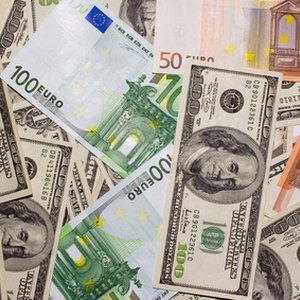
IRAs cannot be marketable or non-marketable securities. That’s because securities and IRA characteristics are quite different from each other.
Securities refer to financial assets, which you can trade on acceptable public exchange platforms. On the other hand, an individual retirement account (IRA) is a tax-advantaged account you can open in various financial institutions to invest in different financial assets.
If your IRA is no longer in use, you can close it down. However, you cannot trade it as you would any form of security. And that’s what makes an IRA different from any form of security. Other retirement accounts, such as the 401(k) and 403(b), can’t be securities for similar reasons.
Types of Different Financial Assets
A financial asset is usually a non-physical asset with a value that stems from a contractual claim of what they represent. When you own these kinds of assets, over time, you will likely receive economic benefits from them. The financial assets traded within the U.S come in various forms. Examples of different financial assets include the following:
- Cash or cash equivalent
- An equity instrument of another entity
- Insurance contracts
- Obligations and rights under leases
- Derivatives
- Fixed deposits
- Bonds
What Are Marketable Securities?
A marketable security is any financial asset you can liquidate quickly. Such an asset should be easy to sell, trade or convert into cash within one year of holding it.
Another characteristic of marketable securities is that they must be available for trading on a public exchange platform. In addition, they should be easy to trade at fair market prices because they have a commonly accepted value.
Most businesses use marketable securities to raise money for capital or expansion purposes. By buying these securities, you get to enjoy the future benefits of funding their activities. Governments also issue some types of securities to raise money to finance public service activities.
You can find these liquid securities under financial statement classifications, such as short-term investments or cash and cash equivalents. In addition, you can find them under the current assets section of a company’s balance sheet.
If you are worried that the IRA investments you have currently are highly illiquid, you can invest in one or more marketable securities. But it would help if you first find out which of these investments best suits your financial needs both in the short and long term. Some may cause you to pay plenty of capital gains taxes.
- Stocks
- Mutual funds
- Exchange-traded funds (ETFs)
- Preferred shares
- Bonds
- Short-term certificates of deposit (CDs)
- Banker’s acceptance notes
- Treasury bills
- Commercial paper
What Are Non-Marketable Securities?
Non-marketable securities are highly illiquid financial assets, but they also tend to be low risk. However, it is difficult to sell or trade these assets since they are usually unavailable on secondary market exchanges. And to trade them, you need to participate in private transactions, which typically take place in over-the-counter exchanges.
It would be wise to consider non-marketable securities when you have long-term savings and investment goals and want guaranteed returns. Also, it would be best if you have some disposable income you don’t need in a hurry.
You can invest in permitted non-marketable securities through your IRA. But bear in mind that accounting for the values of such investments in your account can be difficult during tax time. As a result, you are more likely to make errors.
- Limited partnership company shares
- Shares owned by the company owner of a private company
- Federal government bonds
- U.S savings bonds
- State and local government securities
- Post office and bank accounts
Final Thoughts on Securities
Once you understand what marketable and non-marketable securities are, it is easy to distinguish them from an IRA. The easiest way to do this is by thinking of your IRA as a non-tradable house that holds your money in the form of the different financial assets you own partly or wholly. Therefore, these investments could be marketable or non-marketable securities depending on how easy they are to trade or sell on a public exchange platform.
References
- Investor: Individual Retirement Accounts (IRAs)
- Wall Street Mojo: Financial Assets Types
- My Accounting Course: What are Marketable Securities?
- Accountinguide: Marketable Securities
- EDUCBA: Marketable Securities in Balance Sheet
- TheStreet: What Are Marketable Securities? Definition and Examples
- CFI: Banker’s Acceptance
- CFI: Non-Marketable Security
- IRS: Form 5498 - Asset Information Reporting Codes and Common Errors
- EDUCBA: Non-Marketable Securities
Writer Bio
I hold a BS in Computer Science and have been a freelance writer since 2011. When I am not writing, I enjoy reading, watching cooking and lifestyle shows, and fantasizing about world travels.

